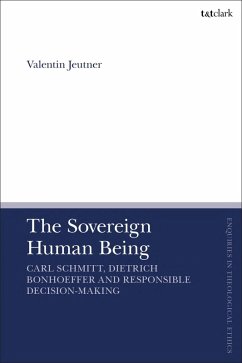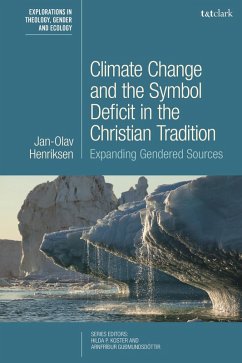
The Limit of Responsibility (eBook, PDF)
Dietrich Bonhoeffer's Ethics for a Globalizing Era

PAYBACK Punkte
14 °P sammeln!
This volume frames the question of responsibility as a problem of agency in relation to the systems and structures of globalization. According to Ricoeur responsibility is a "shattered concept" when considered too narrowly as a problem of act, agency and individual freedom. To examine this Esther Reed develops a short genealogy of modern liberal and post-liberal concepts of responsibility in order to understand better the relationship dominant modern framings of the meanings of responsibility. Reed engages with writings by major modern (Schleiermacher, Hegel, Marx, Weber) and post-liberal (Bub...
This volume frames the question of responsibility as a problem of agency in relation to the systems and structures of globalization. According to Ricoeur responsibility is a "shattered concept" when considered too narrowly as a problem of act, agency and individual freedom. To examine this Esther Reed develops a short genealogy of modern liberal and post-liberal concepts of responsibility in order to understand better the relationship dominant modern framings of the meanings of responsibility. Reed engages with writings by major modern (Schleiermacher, Hegel, Marx, Weber) and post-liberal (Buber, Levinas, Derrida, Badiou, Butler, Young, Critchley) theorists to illustrate the shift from an ethnic responsibility built on notions of accountability and attributions to an ethic responsibility that starts variously from the 'other'. Reed sees Dietrich Bonhoeffer as the most promising partner of this theological dialogue, as his learning of responsibility from the risen Christ present now in the (global) church is a welcome provocation to new thinking about the meaning of responsibility learned from land, distant neighbour, (global) church and the bible. Bonhoeffer's reflections on the centre, boundaries and limits of responsibility remain helpful to Christian people struggling with an increasingly exhausted concept of accountability.













